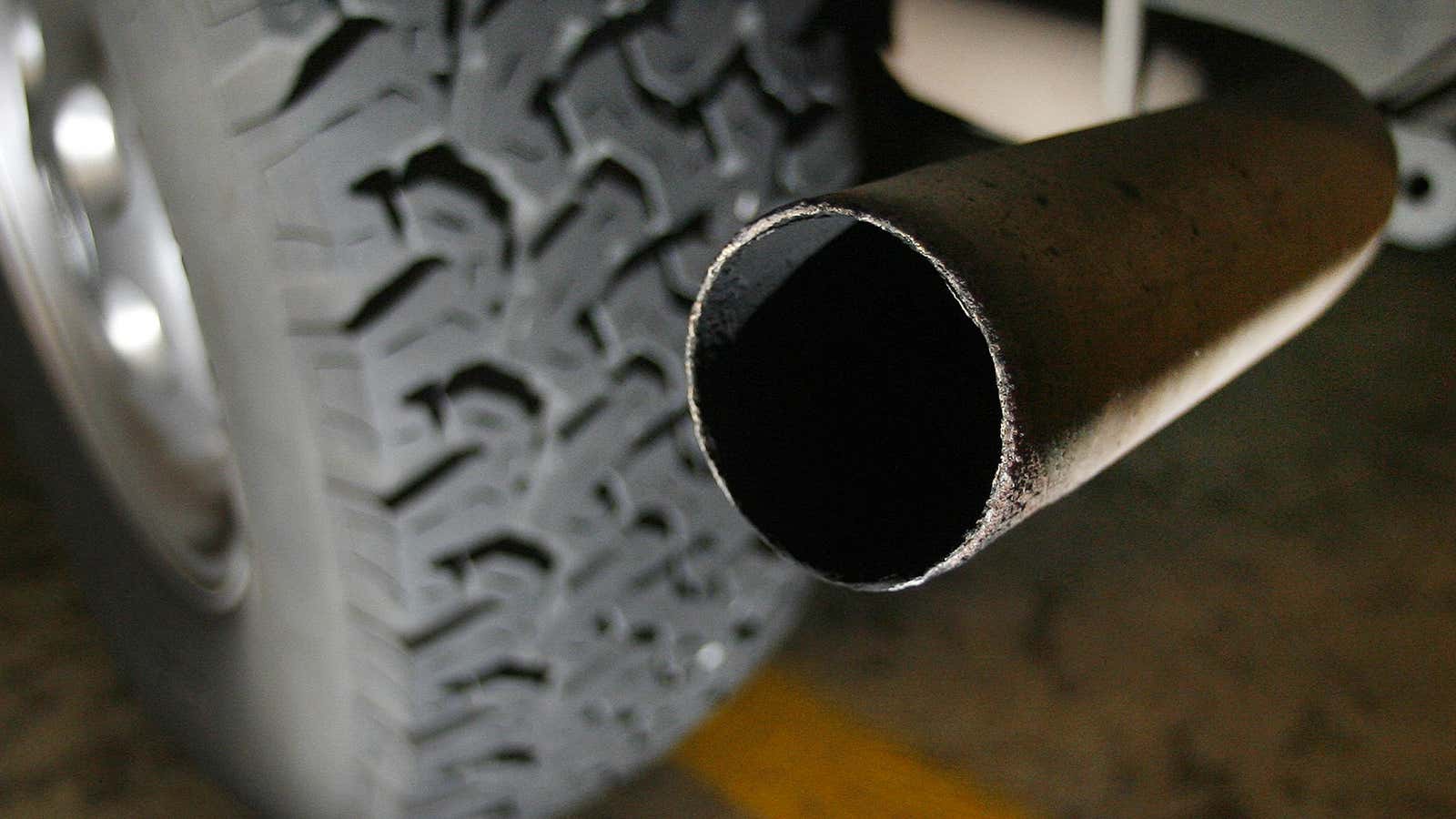New vehicle and gasoline emissions regulations proposed by the US Environmental Protection Agency today will slash harmful pollutants. They’ll also make it harder for Chinese automakers to break into the American market.
The EPA’s proposed regulations, which mirror California’s stricter standards, would require an 80% cut in tailpipe emissions of non-methane organic gases and nitrogen oxides between 2017 and 2025. They would also mandate a 70% reduction in particulate matter (which is linked to heart and respiratory disease) per vehicle. That means less smog and far fewer cancer-causing toxic chemicals in the atmosphere. To achieve these reductions, petroleum refiners would have to reduce the sulfur content of their gasoline by 60%.
So how much is all this going to cost drivers? About a penny a gallon, according to the agency, and an extra $130 on the cost of a vehicle. By 2030, the EPA estimates that the regulations would cost $3.4 billion annually, but would save somewhere between $8 billion and $23 billion in health care costs.
The proposed regulations shouldn’t present much of an obstacle to European, Japanese and South Korean companies that already must meet similar standards in their home markets. The price will be steeper, however, for Chinese automakers, which have made no secret of their desire to crack the US market. BYD and other Chinese companies have been displaying their cars at US auto shows in recent years but have yet to set up shop in the country as they struggle to meet American quality and emission standards.
Qoros, a joint venture between China’s Chery Automobile and Israel’s Israel Corporation, for instance, aims to export high-quality cars that will appeal to European and US urbanites. Idan Ofer, the billionaire chairman of Israel Corp., told me in an interview last September that the company has a simple strategy to avoid dealing with various countries’ emissions regulations. “I believe in five or six years we’ll be selling more electric cars than anything else,” he said.
